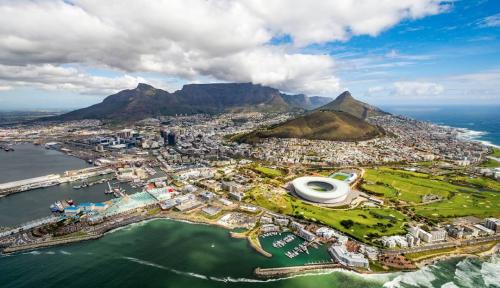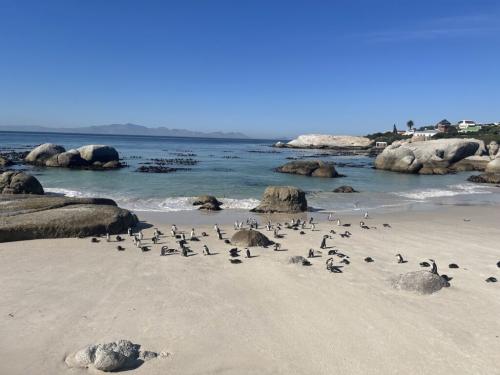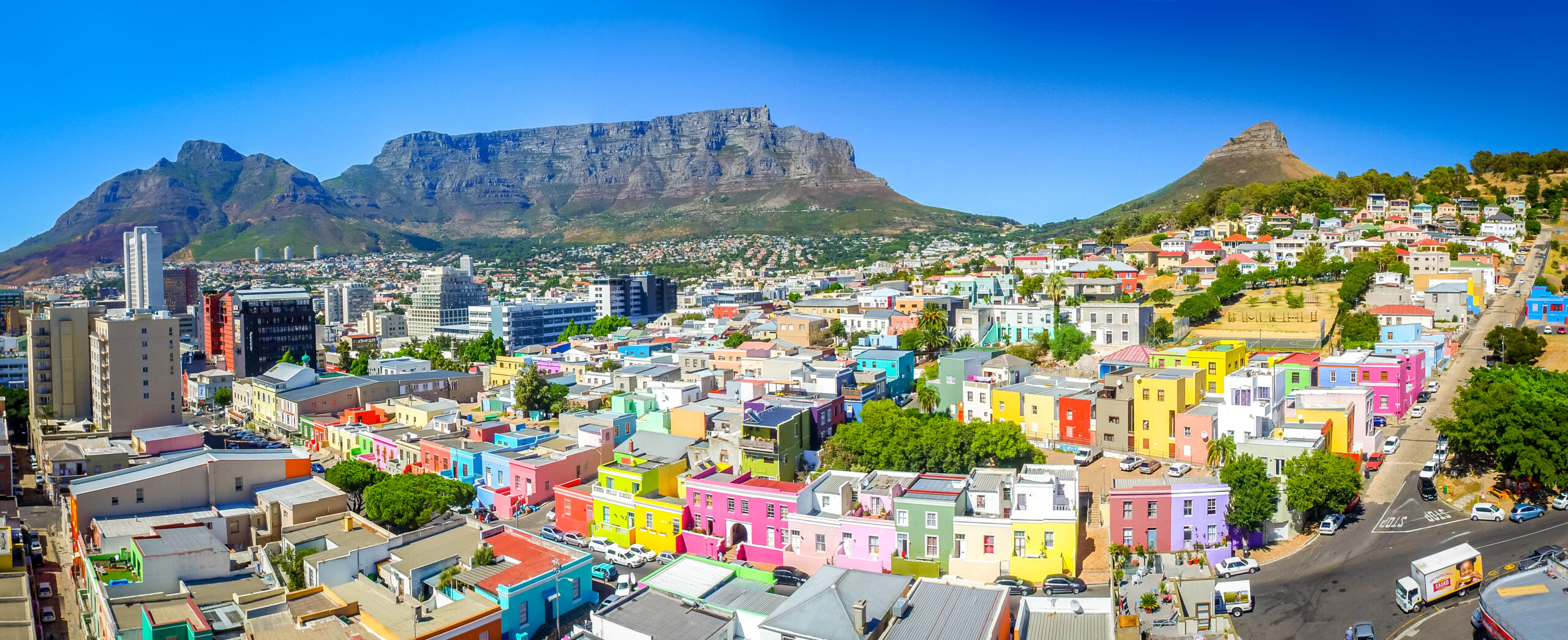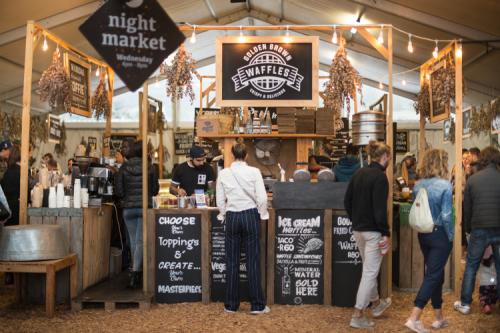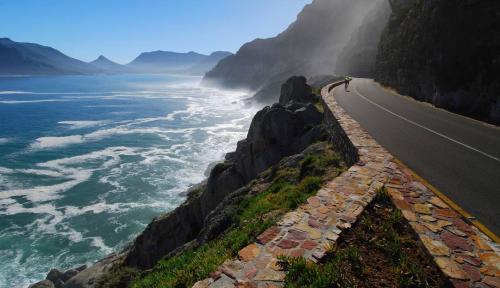The city of Cape Town is one of the most beautiful on earth. There are mountain vistas, ocean views, diverse cultures, and a vibrant energy here. With this comprehensive guide, you’ll be able to navigate the wonders of Cape Town with ease, whether you’re a first-time visitor or planning your next trip. Everything you need to know about the Mother City, from visa requirements to the best places to stay, things to do, and essential safety tips.
Table of Contents
- Visa Requirements & Extensions
- Best Time to Visit Cape Town
- Getting Around Cape Town
- Where to Stay in Cape Town
- Language and Culture
- Currency & Financial Tips
- Top 10 Things to Do in Cape Town
- What to Skip in Cape Town
- Hidden Gems in Cape Town
- Top 5 Restaurants & Bars in Cape Town
- Tipping Culture
- Other Useful Things to Know
- Safety Tips
- Apps You Need
Visa Requirements & Extensions
Visa Requirements
The visa requirements for South Africa vary depending on your nationality, so it’s essential to check the rules before traveling. Most countries (like the UK, USA, EU nations, and Australia) can enter South Africa without a visa for stays up to 90 days. You’ll need a valid passport with at least 30 days of validity beyond your planned stay and proof of onward travel (like a return flight).
Visa Extensions
If you need to extend your stay in Cape Town beyond the 90-day limit, you can apply for a visa extension at the Department of Home Affairs. However, extensions are generally granted for only 30 days, and you should apply well in advance.
Best Time to Visit Cape Town
Peak Season: December to March is Cape Town’s summer season, with warm temperatures (up to 30°C/86°F) and long days. This is the best time to visit for beach lovers and outdoor enthusiasts.
Shoulder Season: April to May and September to November offer a quieter, more affordable experience. The weather is still pleasant, and the crowds are thinner.
Low Season: June to August brings winter weather with occasional rain and cooler temperatures (around 15°C/59°F). It’s the least crowded time, perfect for those seeking a peaceful retreat.
Getting Around Cape Town
Cape Town is a large city with diverse neighborhoods, and getting around is quite easy once you understand your options. Here are the most common ways to get from point A to point B:
Hiring a Car
Hiring a car gives you the flexibility to explore Cape Town and the surrounding areas, including places like the Winelands and the Cape Peninsula. Car hire prices vary, but expect to pay around ZAR 300–500 per day for a standard vehicle. Remember, South Africans drive on the left side of the road.
Uber
Uber is a popular and safe way to get around the city. Fares are generally reasonable, and you can book a ride directly through the app. A ride from the airport to the city center will cost around ZAR 250–350.
MyCiti Bus
Cape Town’s public transport system, MyCiti, is an affordable and efficient way to travel. With routes connecting the airport, city center, and popular destinations like Camps Bay and the V&A Waterfront, it’s a good option for budget travelers. A one-way ticket typically costs ZAR 60–90.
Township Taxis
These minibus taxis are a budget-friendly way to travel within local communities, but they’re not recommended for first-time visitors due to safety concerns. Stick to more established modes of transport if you’re unfamiliar with the city.
Getting from the Airport to the City
Cape Town International Airport is about 20 km from the city center. You have several transport options:
- Uber: ZAR 250–350
- MyCiti Bus: ZAR 80
- Shuttle Services: ZAR 400–600
- Taxi: ZAR 350–500
Where to Stay in Cape Town
Cape Town offers a range of accommodations, from luxury hotels to boutique guesthouses and budget-friendly hostels. Below are the best neighborhoods for first-time visitors:
De Waterkant
Where to Stay in De Waterkant: This trendy neighborhood is famous for its vibrant atmosphere, colorful houses, and proximity to the V&A Waterfront. Stay at The Charles Hotel, a chic spot with modern amenities and an excellent location.
Green Point
Where to Stay in Green Point: Green Point is known for its parks and proximity to both the city center and the waterfront. Check out The Silo Hotel, a luxurious five-star stay with panoramic views of Cape Town.
Sea Point
Where to Stay in Sea Point: Just a short drive from the city center, Sea Point offers a mix of beachfront living and trendy dining. Stay at The Ritz Hotel, offering spectacular views of the Atlantic Ocean and an outdoor pool.
Gardens
Where to Stay in Gardens: A quiet residential area close to the city center. Stay at The Three Boutique Hotel, a charming and intimate guesthouse set in a restored Victorian building.
Tamboerskloof
Where to Stay in Tamboerskloof: Tamboerskloof is a peaceful neighborhood nestled below Table Mountain. Stay at The Backpack, a cozy, eco-friendly hostel perfect for travelers who want to connect with other like-minded adventurers.
The CBD
Where to Stay in the CBD: Cape Town’s Central Business District is the heart of the city, close to landmarks, restaurants, and shopping. Try The Protea Hotel by Marriott, a stylish stay with a great location.
Clifton
Where to Stay in Clifton: Clifton is known for its luxurious properties and beautiful beaches. Book a stay at The Twelve Apostles Hotel and Spa, a five-star experience with unparalleled ocean views.
Camps Bay
Where to Stay in Camps Bay: Camps Bay is Cape Town’s glitzy neighborhood, famous for its beaches and sunset views. Stay at The Bay Hotel, an iconic beachside hotel offering easy access to the beach and vibrant nightlife.
Language and Culture of Cape Town
Cape Town is a melting pot of cultures, with influences from African, European, and Malaysian heritage. English is widely spoken, but you’ll also hear Afrikaans, Xhosa, and other languages. Understanding and respecting the local culture is important, especially when visiting neighborhoods with rich histories like Bo-Kaap.
Currency & Financial Tips
The currency in Cape Town (and South Africa) is the South African Rand (ZAR). Be sure to exchange some currency before you arrive or withdraw cash from ATMs when you’re in the city.
ATMs: Available throughout the city, but avoid using ATMs in secluded areas.
Credit Cards: Major credit cards like Visa and MasterCard are widely accepted in most businesses, but it’s a good idea to carry some cash for smaller shops and street vendors.
Top 10 Things to Do in Cape Town
1. Head Up Table Mountain
A visit to Cape Town isn’t complete without a hike (or cable car ride) up Table Mountain. The panoramic views of the city, Atlantic Ocean, and Robben Island are simply breathtaking.
2. Relax on the Clifton Beaches
Clifton‘s pristine white sands and turquoise waters make it one of Cape Town’s most beautiful beach spots.
3. Get Tipsy on the Franschhoek Wine Tram
Take a ride on the Franschhoek Wine Tram for a scenic journey through the Cape Winelands, with stops at some of the best wineries.
4. Visit the Penguins at Boulders Beach
Head to Boulders Beach in Simon’s Town to see the famous African penguins in their natural habitat.
5. Explore Bo Kaap
This vibrant neighborhood is known for its colorful houses and rich history. Don’t forget to visit the Bo Kaap Museum and sample some local Malay dishes.
6. Hike Lion’s Head
This relatively easy hike offers panoramic views of Cape Town and is particularly popular during sunrise and sunset at Lion’s Head.
7. Hang Out at the Oranjezicht Market
Visit the Oranjezicht City Farm Market for a taste of local produce, fresh food, and artisanal products.
8. Visit Cape Point and Cape of Good Hope
Located within the Table Mountain National Park, Cape Point is home to rugged cliffs and breathtaking landscapes.
9. Enjoy Sunset at Kloof Corner
Kloof Corner is one of the best spots to watch the sunset over Cape Town, offering spectacular views of the city and coastline.
10. Drive Chapman’s Peak
Drive along one of the world’s most scenic coastal routes, Chapman’s Peak Drive, which offers spectacular ocean and mountain views.
What to Skip in Cape Town
Shark Cage Diving
While it’s a popular activity, shark cage diving is controversial and can be harmful to the environment. Skip it and focus on other thrilling adventures, like hiking.
Camps Bay Beach
While stunning, Camps Bay is often overcrowded and overpriced compared to quieter beaches like Clifton or Llandudno.
Going Out in Camps Bay
The nightlife here is a bit too touristy and expensive. For a more authentic experience, check out local bars in the City Bowl or Long Street.
5 Hidden Gems in Cape Town
1. West Coast National Park
This nature reserve, about 1.5 hours from Cape Town, is home to stunning wildflowers in spring and abundant birdlife.
2. The Leopard Bar at the 12 Apostles
Located in The Twelve Apostles Hotel, this bar offers breathtaking views and is perfect for sunset cocktails.
3. Woodstock Street Art
Explore the gritty, artistic side of Cape Town with a walk through Woodstock, home to incredible street art and murals.
4. Saunders Rock Beach
A hidden gem with fewer crowds, Saunders Rock offers serene waters and a quiet atmosphere perfect for sunbathing.
5. Seal Island, Hout Bay
Take a boat trip to Seal Island off Hout Bay, where you can see thousands of Cape fur seals in their natural habitat.
Top 5 Restaurants & Bars in Cape Town
1. Kloof Street House
An eclectic, stylish restaurant offering everything from tapas to gourmet dishes, with a cool ambiance.
2. Life Grand Cafe
A popular spot for brunch, serving fresh and delicious meals with a great selection of beverages.
3. Cousin’s Trattoria
For amazing Italian food, Cousin’s Trattoria in Sea Point is a must-visit. The pasta is divine!
4. Jarryd’s Brunch & Bistro
Known for its Instagram-worthy dishes and creative menu, Jarryd’s is the perfect place to fuel up before a day of exploring.
5. The Duchess
For a more upscale experience, The Duchess offers incredible cocktails and a refined dining experience.
5 Best Bars
- Van Hunks – Relaxed and fun bar, great for sunset views and cocktails.
- House of Machines – A chic, trendy spot with excellent craft cocktails.
- The Lawns – Located at the V&A Waterfront, perfect for relaxed evenings by the water.
- Athletic Club and Social – A cool bar with great vibes, perfect for a night out with friends.
- Open Wine – A cozy wine bar in the city center offering an extensive list of local wines.
Tipping Culture
Tipping is appreciated in Cape Town, and it’s common to leave 10–15% at restaurants. For bars, rounding up the bill is sufficient. Car guards and hotel staff also expect a small tip, usually around ZAR 10–20.
Other Useful Things to Know
- SIM Cards: It’s easy to get a local SIM card for your phone at the airport or in the city. Prices are affordable and the coverage is great.
- Tap Water: Yes, Cape Town’s tap water is clean and safe to drink. No need to buy bottled water.
- Alcohol Rules: South Africa has strict laws on alcohol sales. Liquor shops (bottle stores) are generally only open from 9 am to 6 pm during the week.
- Traffic: Try to avoid rush hour (7–9 am and 4–6 pm) if possible, as the city can get congested.
- Weather: Even in summer, evenings can be chilly. Bring a light jacket for the cooler nights.
- Wind: Cape Town is often windy, especially in the summer months. Pack accordingly.
Safety Tips
- Scams: Be cautious of street vendors and always keep your valuables secure.
- Begging: It’s common in some areas; simply ignore it if you don’t feel comfortable giving.
- Cat-calling: Unfortunately, cat-calling can be an issue. Stay aware of your surroundings and avoid isolated areas.
- Don’t Walk Around at Night: Stick to well-lit, populated areas after dark, especially in the city center.
- Safe Areas: Stay in tourist-friendly neighborhoods like V&A Waterfront, Green Point, and Camps Bay.
Apps You Need
- Uber: For easy transport.
- MyCiti App: For bus routes and schedules.
- Cape Town Tourism: For the latest events, activities, and news.
- Maps.me: For offline maps if you need navigation without using data.
- Alert Patrol: For safety alerts and local crime info.
The best things to do in Cape Town are outlined in this guide. The region offers stunning beaches, world-class wine estates, and cultural landmarks.

